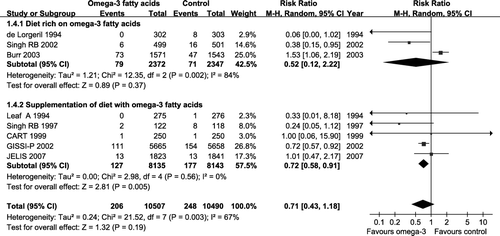Figures & data
Figure 1. The selection process for RCTs of omega-3 fatty acids. The Quality of Reporting of Meta-analyses (QUOROM) flow diagram describes the screening process and exclusion criteria for RCTs of omega-3 fatty acids. Eight trials met the inclusion criteria. (RCT = randomized controlled trial.)
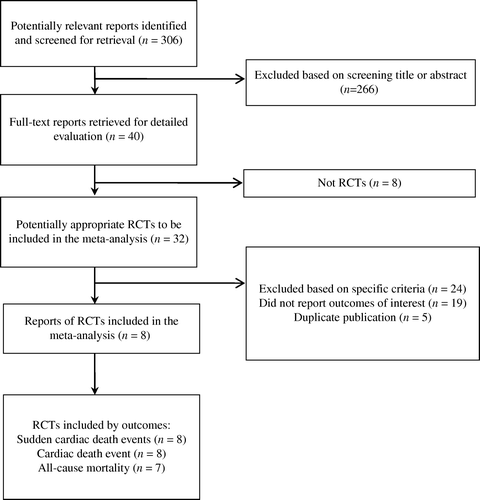
Table I. Characteristics of randomized controlled trials of omega-3 fatty acid in the meta-analysis.
Table II. Data on cardiac death and SCD in randomized controlled trials of omega-3 fatty acid.
Figure 2. Prevention of sudden cardiac death with omega-3 fatty acids. Analysis of the randomized controlled trial (RCT) subgroup with a low proportion of myocardial infarction patients revealed a statistically non-significant trend of reduced sudden cardiac death. However, the subgroup with high proportion of myocardial infarction patients demonstrated a significant reduction in sudden cardiac death (SCD). Individual and pooled analysis demonstrated a non-significant 29% relative risk reduction (relative risk reduction = 1–relative risk, so one minus the relative risk of SCD (0.71) = 0.29) in sudden cardiac death.
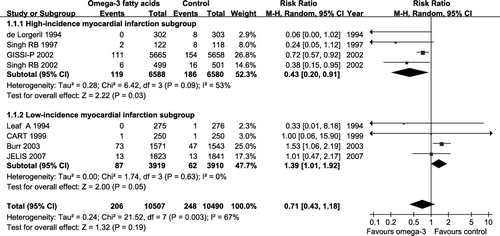
Figure 3. Prevention of cardiac death with omega-3 fatty acids. The high-incidence myocardial infarction subgroup showed a significant reduction in cardiac death. Individual and pooled analysis demonstrated a non-significant 29% relative risk reduction (relative risk reduction = 1–relative risk, so one minus the relative risk of sudden cardiac death (SCD) (0.71) = 0.29) in cardiac death.
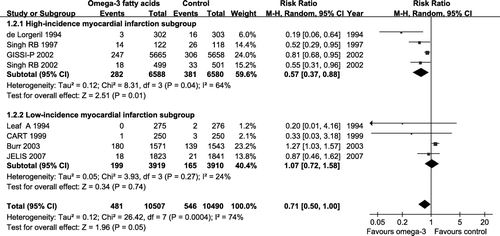
Figure 4. Effect of omega-3 fatty acids on all-cause mortality. The high-incidence myocardial infarction subgroup experienced a significant reduction in all-cause mortality. Individual and pooled analysis demonstrated a non-significant 23% relative risk reduction (relative risk reduction = 1–relative risk, so one minus the relative risk of sudden cardiac death (SCD) (0.77) = 0.23) in all-cause mortality.
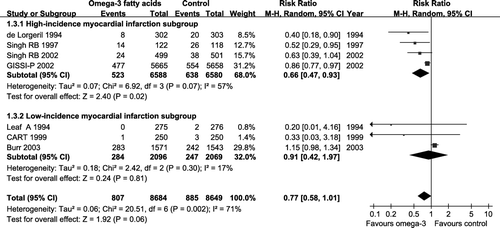
Figure 5. Effect of dietary or supplement sources of omega-3 fatty acids on sudden cardiac death. Sudden cardiac death was reduced in the randomized controlled trials (RCTs) in which omega-3 fatty acids were administered as a supplement (RR = 0.72; 95% CI: 0.58–0.91), but not in RCTs with diet or dietary advice (RR = 0.52; 95% CI: 0.12 to 2.22).
